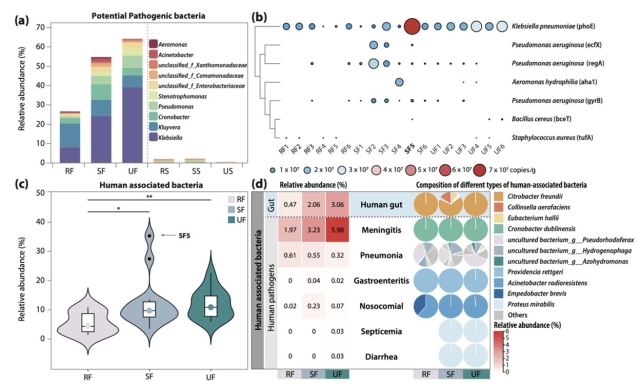| Location: Home > Papers |
| First Author: | ZHANG Yiyue |
| Abstract: |
Our understanding of the role urbanization has in augmenting invasive species that carry human bacterial pathogens and antimicrobial resistance (AMR) remains poorly understood. Here, we investigated the gut bacterial communities, antibiotic resistance genes (ARGs) and potential antibiotic-resistant pathogens in giant African snails (Achatina fulica) collected across an urbanization gradient in Xiamen, China (n = 108). There was a lack of correlation between the microbial profiles of giant African snails and the soils of their habitats, and the resistome and human-associated bacteria were significantly higher than those of native snails as well as soils. We observed high diversity (601 ARG subtypes) and abundance (1.5 copies per 16S rRNA gene) of giant African snail gut resistome. Moreover, giant African snails in more urban areas had greater diversity and abundance of high-risk ARGs and potential human bacterial pathogens (e.g., ESKAPE pathogens). We highlight that urbanization significantly impacted the gut microbiomes and resistomes of these invasive snails, indicating that they harbor greater biological contaminants such as ARGs and potential human bacterial pathogens than native snails and soils. This study advances our understanding of the effect of urbanization on human bacterial pathogens and AMR in a problematic invasive snail and should help combat risks associated with invasive species under the One Health framework.
|
| Contact the author: | SUN Xin |
| Page Number: | |
| Issue: | |
| Subject: | |
| Impact Factor: | |
| Authors units: | |
| PubYear: | 2023 Apr |
| Volume: | |
| Publication Name: | Environmental Science & Technology |
| The full text link: | https://doi.org/10.1021/acs.est.3c01233 |
| ISSN: | |
| Appendix: |
